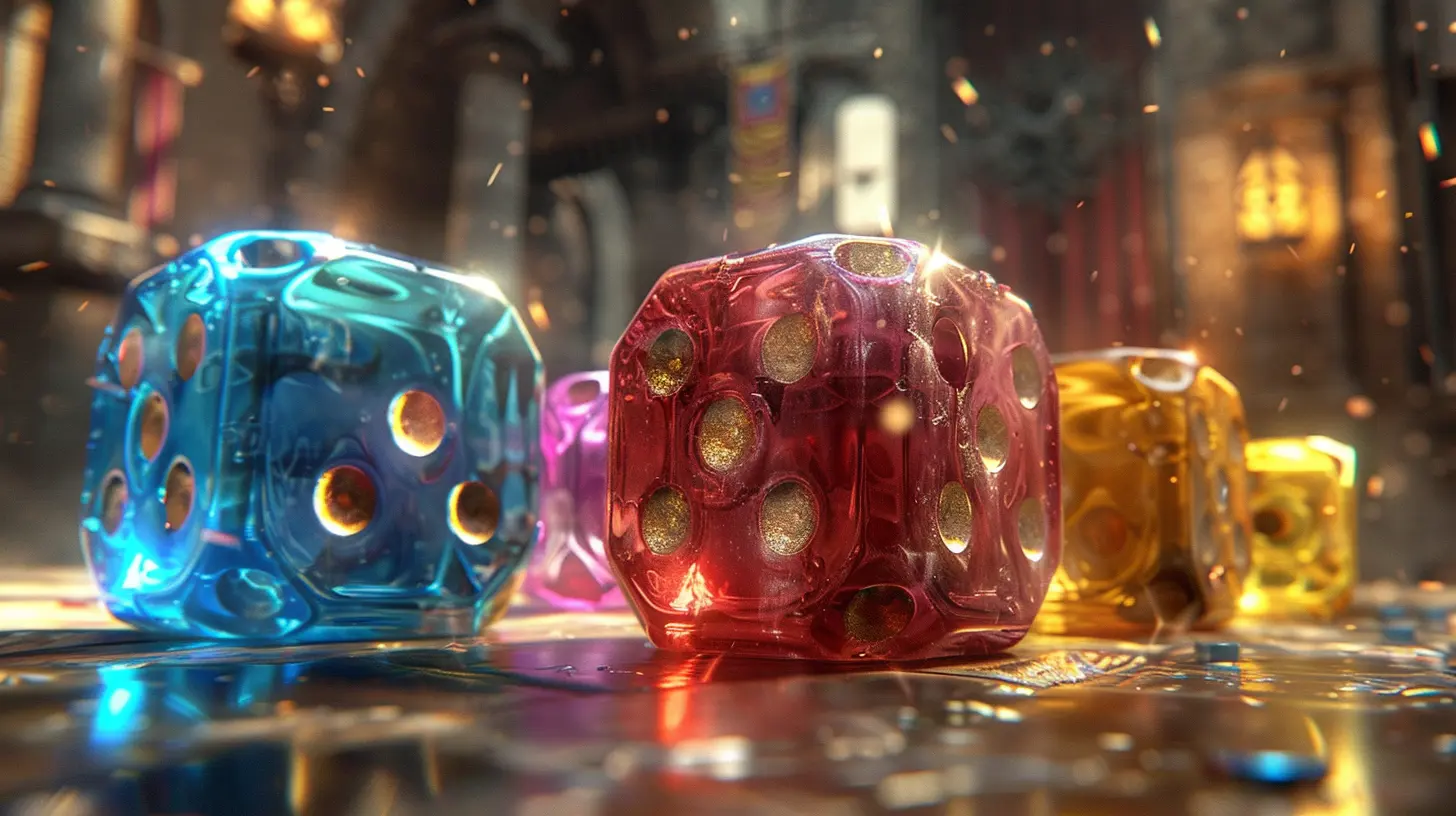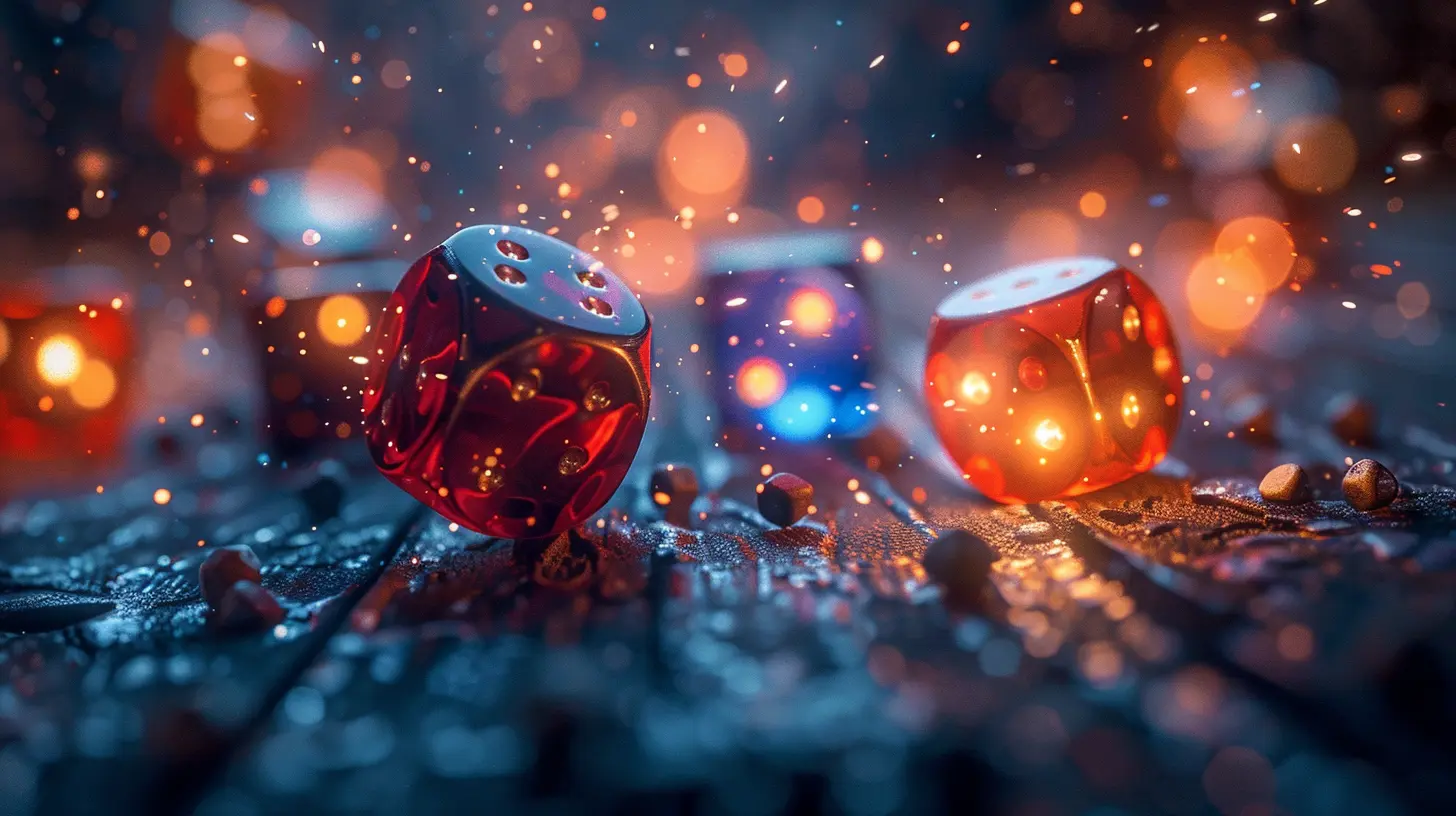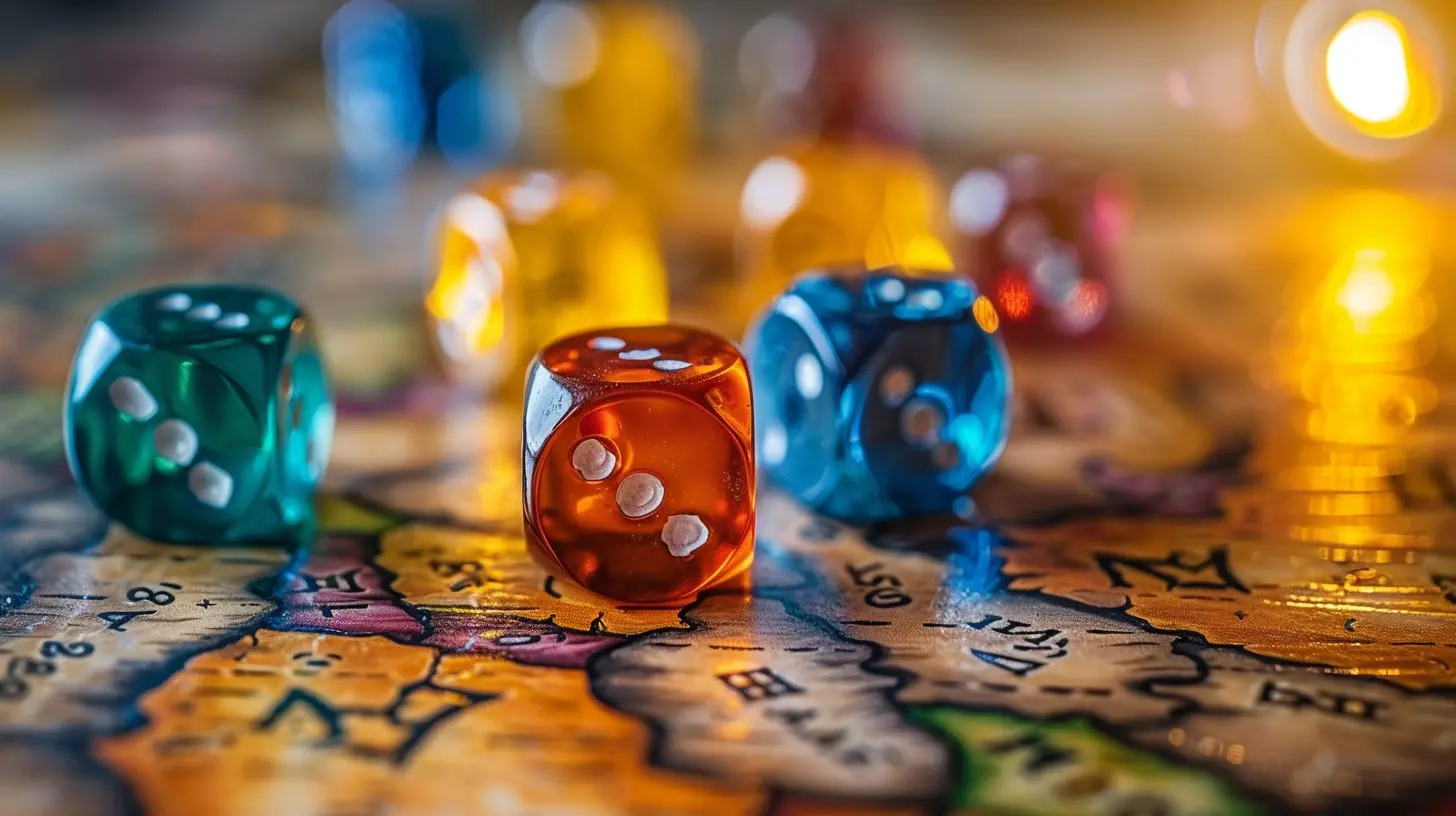Dice Rolling Mechanics: What Makes Them So Compelling?
8 September 2025
Whether you’re deep into a tabletop RPG campaign, crowded around a Monopoly board, or playing a mobile dice-based war game, one thing is certain: dice rolling mechanics fuel the fire of gameplay like few other features can. Those tiny cubes—or shapes, if we’re going fancy with D12s and D20s—carry an incredible amount of emotional weight. They can make you cheer, groan, or throw your hands up in defeat or victory.
But what exactly makes dice rolling mechanics so compelling? Why do players across genres and generations still love that simple act of rolling a die?
Let’s roll into this topic and unpack the psychology, the gameplay impact, and the timeless appeal of dice rolling in games.
🧠 The Psychology Behind Dice Rolls
Let’s start with the brain stuff. Ever notice how your heart races just as you roll a die in a pivotal moment? That’s not just you being dramatic (well, maybe a little). It’s the basic psychology of chance and uncertainty at play.🎲 The Thrill of Uncertainty
Dice rolls introduce randomness—pure chance. And guess what? Humans are wired to get a dopamine hit when they anticipate an unknown outcome. It’s the same mechanism that makes gambling addictive. When you roll a die, you suspend your expectations. Will it be a six or a one? That unknown is exhilarating.Plus, when you win based on a roll, it feels like fate just gave you a high five.
🧲 The Illusion of Control
Ever blow on the dice, or shake them a certain way before rolling? Yeah, you’re not alone. Even though dice rolling is entirely random, players often feel like they can influence the outcome. This illusion of control gives players a stronger emotional connection to the game.
🎮 Dice Rolling as a Game Mechanic
Now that we’ve touched on why our brains are suckers for dice, let’s break down their role in game design. There's a reason they're still relevant in both digital and analog games.🏛️ The Heritage Factor
Dice have ancient roots. We’re talking 3000 BC ancient. This age-old mechanic has been used across cultures for thousands of years. That deep-rooted familiarity makes dice feel natural in gameplay. They're like the comfort food of game mechanics.⚙️ Balancing Skill and Luck
Skill vs. luck—it’s the eternal tug-of-war in game design. Dice bring luck to the table, and in doing so, they help balance the playing field. A rookie might beat a pro if the dice favor them. That keeps things exciting and unpredictable.Think about Risk. You could have a stronger army, but one bad roll and your troops are toast. That makes every move more intense.
🔄 Replayability and Variability
Dice greatly enhance replayability. The randomness they bring ensures that no two sessions are exactly alike. You can play the same game ten times and always get a new experience, just based on how those tiny polygons tumble.
⚔️ Dice in Roleplaying Games (RPGs)
If you’ve ever played Dungeons & Dragons, Pathfinder, or any tabletop RPG worth its salt, you know dice are more than just number generators—they’re the beating heart of the story.🧙♂️ Storytelling and Stakes
In roleplaying games, dice don’t just resolve combat—they shape narratives. Trying to persuade a king? Roll. Disarming a trap? Roll. Picking a lock in the dead of night? You guessed it—roll.This randomness adds suspense and stakes to every decision. Your character may be skilled, but the dice ensure that no action is guaranteed. That unpredictability mirrors real life, making the story more immersive.
🎭 Emotional Investment
RPG players often become deeply attached to their characters. When a roll determines whether your wizard gets incinerated or escapes with a sliver of health, the emotional stakes shoot through the roof. Dice outcomes can lead to character growth, unexpected plot twists, or even epic fails that make for the best campfire stories later.
🎲 Digital Games and Dice Mechanics
Think dice are only for board games? Nope. Digital games have adopted and adapted dice mechanics in clever ways.📱 Mobile and Strategy Games
Games like Hearthstone or Dicey Dungeons use RNG (random number generation) heavily, essentially acting like virtual dice. Even modern RPGs include chance-based mechanics—critical hits, loot drops, dodge percentages—all mimicking dice rolls behind the scenes.🖥️ Reinventing the Roll
Some games take the theme even further. Titles like "Tharsis" literally display digital dice that you roll and assign to ship functions. It looks and feels like a board game but is soaked in digital polish. This kind of hybrid gameplay gives players that tactile throwback dice feel, even on a screen.Digital games also let designers use weighted dice or gameplay mechanics that tilt odds based on player behavior, making the system feel fair without removing the thrill of the roll.
📏 Types of Dice Systems in Games
All dice are not created equal. Some games use basic D6s (six-sided dice), while others pull out a full array—D4, D8, D10, D12, and of course, the iconic D20. Let’s look at a few common systems and how they shape gameplay.🎯 The Single D20 System
Used in Dungeons & Dragons and many other RPGs, this one-roll-to-rule-them-all method simplifies resolution. You usually add a modifier to your roll, compare it to a difficulty score (DC), and boom—success or failure.🪜 Dice Pools
Games like Shadowrun or World of Darkness use dice pools. You roll multiple dice and count the number of successes (e.g., rolls above a certain number). It gives a better statistical spread and more granular results, which some players love for the extra nuance.💥 Exploding Dice
One of the most dynamic mechanics, "exploding dice" means if you roll the maximum number on a die, you get to roll again and add the new value. It adds the chance for epic, cinematic moments—like taking down a boss with an insane hit.🤝 Dice and Social Interaction
Dice don’t just determine outcomes—they shape how people interact around the table.😂 Shared Moments and Memes
Rolling a critical failure (a nat 1!) can be just as memorable as a natural 20. These moments become shared memories, stories, memes even. In a way, dice help build community among players.🗣️ Tension and Table Talk
The anticipation before a clutch roll leads to group tension, laughter, groans, and cheers. This social element is irreplaceable. It’s that “you had to be there” kind of magic that elevates gameplay beyond the mechanics.🌀 Advanced Dice Mechanics: Innovating Tradition
Though dice are ancient, designers constantly breathe new life into them with innovative systems.🧠 Custom Dice and Symbols
Some games, like Fantasy Flight’s Star Wars RPG, use custom dice with symbols instead of numbers. These symbols reflect varying degrees of success, failure, or even narrative implications. It’s not just about winning or losing—it’s about how the story unfolds.🧩 Dice Crafting & Engine Building
In dice-builder games like “Dice Forge,” you can actually change the faces of your dice. That’s right—you upgrade your dice as you play, turning a humble D6 into a powerhouse. It combines dice rolling with strategic planning, giving you a fresh twist on randomness.🙋 Why We Keep Coming Back to Dice
Let’s be real—dice can betray us. They can crush dreams and ruin perfect plans. But we keep coming back. Why?Because they symbolize potential. Every time you roll, anything can happen. It's like opening a mystery box every single turn. The tension, the thrill, the surprise—that’s what keeps dice rolling mechanics alive and well across genres.
Dice are the great equalizers, the chaos engines, the storytellers in your palm. They can make you feel like a hero… or a total fluke. And honestly? That’s the fun of it.
Final Thoughts
Dice rolling mechanics aren't just relics of board games past. They're woven into the heart of game design, from gritty RPGs to polished mobile games. They masterfully blend randomness with suspense, skill with luck, and structure with chaos.Whether you’re chucking D20s in a fantasy world or tapping a screen to roll virtual dice in a digital dungeon, the magic remains the same. And that magic? That blend of strategy, surprise, and shared experience—it’s what makes dice rolling one of the most compelling mechanics in all of gaming.
So the next time you’re about to roll…stop and appreciate just how much power that little cube has over your fate. Now go roll a nat 20, will ya?
all images in this post were generated using AI tools
Category:
Tabletop GamesAuthor:

Lana Johnson
Discussion
rate this article
1 comments
Cecilia McVicar
Dice rolling mechanics add an exhilarating element of chance and strategy to games, sparking creativity and excitement. Embrace the unpredictability and let the adventure unfold!
September 30, 2025 at 4:53 AM

Lana Johnson
Thank you! You're spot on—dice rolling truly enhances gameplay by balancing chance and strategy, driving creativity and unexpected adventures.


